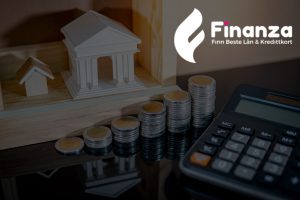
Introduction: Passing the Challenge Is Just the Beginning
So you passed the evaluation, proved your consistency, and landed your funded account. Congratulations—seriously. That’s no small feat. But if you think the hard part is over, think again. The real test starts now. This is where performance turns into pressure, and structure becomes your new best friend—or your downfall. Many traders dream about getting funded, but few understand what it really means to trade with someone else’s capital. It’s not just about bigger numbers on your dashboard. It’s about treating trading like a profession, not a hobby. Once you’re funded by a prop firm, the expectations change—and so should your mindset. This article pulls back the curtain on what comes next: from navigating payout cycles to managing emotions, scaling accounts, and staying consistent over time. If getting funded is the door, this is the path that leads to sustainable income—and maybe even a career in the markets.
Welcome to the Rules of the Real Game
Once you’re funded, you’re not just a trader—you’re an asset to the prop firm. That means your actions are monitored, measured, and subject to strict rules. Most firms have specific requirements: maximum daily loss, overall drawdown limits, trading hours, and consistency metrics. You can’t just swing for the fences anymore.
This structure isn’t a punishment—it’s a framework for professionalism. These risk parameters are designed not to limit you, but to protect both you and the firm’s capital. And let’s be honest—this is where many traders choke. They get funded, overtrade, breach a rule, and lose it all within a week. Why? Because they didn’t shift their mindset from hustler to operator. If you want longevity with a funded account, rules aren’t the enemy—they’re your runway.
The Emotional Shift: Now It Really Counts
There’s something wildly different about trading a real funded account. Even if the capital isn’t yours, the stakes feel higher. Every mistake has a consequence, every gain a validation. This can create a strange kind of pressure—especially if you’ve been used to demo accounts or self-funded trades where failure was easier to rationalize.
With a funded account, every decision starts to feel like a test. That’s why emotional control becomes even more critical. You need to trust your system, keep your cool, and execute with the same discipline that got you funded in the first place. The prop firm isn’t looking for gamblers—they’re looking for steady operators. The moment you let emotions guide your trades, you’re risking your account and your future earnings. Post-funding is when real psychology work begins.
Consistency Over Flash: The Trader’s Dilemma
One of the biggest misconceptions in trading is that success equals size. Many traders, once funded, fall into the trap of chasing big wins to prove their worth. But most prop firms aren’t impressed by sudden surges—they’re impressed by traders who can protect capital and grow slowly over time.
Consistency becomes the holy grail. The traders who thrive on funded accounts are often those who aim for small, repeatable profits with minimal drawdown. It’s not sexy—but it’s sustainable. If you’re hitting your targets without breaking rules, you’ll often be eligible for scaling plans that give you access to more capital. Ironically, it’s the traders who don’t force scale who often earn it the fastest. With a funded account, slow and steady doesn’t just win the race—it extends your runway.
Scaling Up Without Scaling Out of Control
One of the main perks of being funded is the ability to scale. Many prop firms will increase your capital allocation based on performance. But here’s the catch: bigger accounts mean bigger responsibility. Scaling too fast without adjusting your risk controls can lead to major psychological strain.
Traders who handle scaling well are those who scale their discipline alongside their capital. They continue using the same strategies that got them funded—just at higher volumes. They resist the urge to “impress” the firm and instead focus on process. If you start treating your $100K account like a $1 million lottery ticket, you’ll lose both the account and your credibility. Scaling should be a reward for maturity, not a test of your limits.
Getting Paid and Reinvesting in Your Growth
Payout day is sweet—but it’s also strategic. Some traders make the mistake of pulling every dollar out, treating each payout like a paycheck. But smart traders treat funded trading like a business. They reinvest a portion into education, better equipment, or time spent refining strategy. Others use it to build savings, diversify into other income streams, or set up personal investment accounts.
Prop firms typically operate on bi-weekly or monthly payout schedules, and most require that you maintain a minimum balance to stay funded. Understanding the firm’s payout mechanics—and planning around them—is key to long-term success. The goal isn’t just to make money. It’s to build a system that sustains itself. A single good month doesn’t make a career. But steady payouts, reinvestment, and growth do.
When (Not If) You Hit a Drawdown
Every trader hits a losing streak. What matters is how you handle it. With a funded account, drawdowns aren’t just about ego—they’re about risk limits. Prop firms won’t wait for you to “figure it out” if you’re bleeding capital. That’s why recovery protocols are critical.
Experienced traders have a plan before the slump hits. They reduce risk, trade smaller, or even take a break. They know that trading tired, emotional, or desperate is a fast way to lose funding. Funded trading is a game of resilience. Firms don’t expect perfection—but they do expect professionalism. Drawdowns are part of the business. It’s how you manage them that determines whether you stay in business.
Conclusion: Getting Funded Is the Start of the Professional Chapter
Passing the challenge is like getting hired. What comes after is your job performance. A funded account isn’t a trophy—it’s an opportunity. One that comes with structure, expectations, and serious upside for those who treat it with respect. The post-funding phase is where careers are built, or broken. It’s where discipline beats dopamine, and long-term thinking replaces short-term ego. The traders who thrive are those who understand that capital isn’t the final goal—it’s the beginning of a bigger journey. Funded accounts are not the finish line. They’re your first real shot at making trading more than a dream. So if you’re there—show up, lock in, and build the future your skill deserves.







